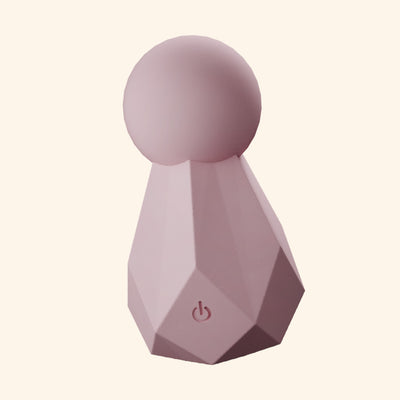Your cart is currently empty

“Beta, please sit properly,” with a wide, warm smile on the face.
I’m sure you’ve heard this at some point in your life. It sounds harmless. Sweet even. The kind of sentence that reminds you of a well-meaning mother’s gentle reprimand to her fidgety daughter.

"Sit properly." "Don't laugh so loudly." What will people think?" These instructions are slipped into everyday life like teaspoons of sugar into chai - unquestioned, habitual, and thoroughly normalized.
We sip the chai and shrink. Eventually, when we’re hitting puberty, the noose starts tightening even more.
But what if these daily dosages of “discipline” aren’t just quirky desi traditions or grandma’s greatest hits? What if they’ve been lowkey screwing us over for years?
The Male Gaze Comes Home
We often talk about the male gaze in the media. But before it reaches cinema halls or Instagram feeds (or before we reach there), it is established in homes. It grows up in our living rooms, gets comfy on our sofas, and learns to snack on us. Young girls are trained to anticipate this gaze - to preempt it, avoid it, manage it.

When my older male relatives came over, I was always told to change my clothes. And mind you, my mom is super progressive. Even then, “beta, it’s not us, it’s them.” I remember fighting about how I do not want to change and just be left comfortably in my home shorts. This is, at the end of the day, my own home. My rebellion often led to arguments. I was told to avoid the room with men altogether if I do not change.
We learn early on that our body is a source of discomfort or danger. Either to ourselves or others. Our interactions with male relatives as young girls are monitored, so that we can be told to sit properly the minute we change our position. Our own homes are sites of caution.
This surveillance isn’t just about safety. It’s about shame. A girl's body, in this cultural logic, is a ticking time bomb that must be prevented from exploding.
Grooming Girls for the Marriage Market
From the moment an Indian girl begins to take up space in the world, she is reminded that her body is not hers to own. It belongs to her future husband. Her in-laws. Her community. Her family’s reputation.
In parts of India, newlywed brides are still expected to sleep on a white sheet to prove their virginity. The logic? If she bleeds, she is pure. While we sip lattes in Bombay and Delhi, thinking things have changed, in many rural corners, the script is still painfully the same. The hymen, that thin mucosal tissue, becomes a symbol more powerful than truth itself.

Never mind the entire medical community screaming from the rooftops that the hymen is not a reliable virginity test. That it can wear down from sports, dancing, cycling, or just existing with a vagina. Nope. Logic takes a backseat while patriarchal BS rides shotgun.
So, what happens? Girls are groomed to maintain it. She must be careful not to run too fast. Or cycle too much. Or dance too hard. Because that might break the hymen. The body must be intact, cause the future shaadi cannot be at risk.
And that’s not all. We get micro-dosed with marriage prep from day one. “Don’t go out in the sun too much, gori rehni chahiye - varna shaadi kaun karega?” How dare we let UV rays ruin rishta potential!
We’re not trained to understand our body, our needs, or our pleasure. We’re trained to be looked at, evaluated, and finally - approved.
What is this doing to us?

What happens when girls grow up with this constant monitoring? When the first lessons about their bodies come wrapped in restriction, fear, and shame?
An Internalized Male Gaze Era
These instructions become the foundational blueprint of our self-concept. Our relationship with our bodies becomes externalized. We start to view ourselves not from within, but from the perspective of an imagined onlooker. This is called the Internalized Male Gaze - a concept coined in feminist theory that explains how women start seeing themselves through a mental lens of “how would a man see me right now?” It’s like planting a surveillance camera in your own head.
And nope, this gaze doesn’t retire with age. It haunts women through teenage years, adult life, and in between. It morphs into self-objectification, low-key self-loathing, and a chronic case of “do I look okay?” When your body has always been something to “manage,” you rarely learn to inhabit it freely.
Afraid to Ask for Pleasure
A girl who’s never allowed to ask questions about her body will grow up into a woman who struggles to ask for what she wants - in bed, in love, in life. The words "can you do that slower," or "I don’t like this," or "I want more" feel foreign on her tongue. Shame, not curiosity, becomes the dominant emotion around sex.
Even in the most loving relationships, so many women bite their tongues. Not because they don’t have needs, but because they’ve been trained to prioritize being polite over being pleasured. Their entire sensual language is one of silence.

Detachment From their Own Body
They don’t just grow into cautious women. They grow into disconnected women. They grow as women who struggle to feel “at home” in their own damn skin. They see their own bodies as something separate, something troublesome, something to hide.
This kind of disembodiment shows up everywhere. In flinching at the mirror. In crying when trying on clothes. In hating that one body part like it’s personally betrayed you. In feeling weird about being naked, even when you're alone. In not knowing if you're turned on or uncomfortable. In not knowing how to say no - or yes. Because when your entire girlhood is drilled into you with the lesson that even sitting with your legs apart is “bad behavior,” how the hell are you supposed to feel free under the sheets?
And here's the worst part: Many women don't even realize how much they've outsourced the ownership of their bodies to others. To partners. To family rules. To society’s Pinterest board of a ‘good’ girl.

Psychologist Hilde Bruch, who worked extensively on body image and eating disorders, wrote: “When the body becomes the enemy, the self splits into pieces.” For many Indian women, that split happens so so so early, and never truly heals.
The Legacy of Shame
Shame isn’t just imposed, it’s inherited, like your nani’s old bangles. A full-blown family heirloom, passed lovingly through generations, wrapped in hushed tones and “beta, it’s for your own good” disclaimers. Mothers who weren’t allowed to explore their own sexuality often struggle to talk to their daughters about theirs. So the silence doesn’t just linger - it multiplies across generations. It gets passed on from these girls to the girls who will come after them, and the girls who come after.
And the extreme consequence of this mindset?
In 2021, a 17-year-old girl in Uttar Pradesh was allegedly murdered by her own uncles for wearing jeans. Yup, denim. They saw it as a dishonor to the family. The act of choosing her clothing was interpreted as rebellion.
The question is never really about clothes. This is a question of control. It’s about autonomy, and the discomfort that patriarchy feels when women dare to have it.
A Reckoning
Feminism is, and has always been, about agency. But in a world where women are stripped of choices before they even understand what the word agency means, autonomy starts becoming an act of resistance.
The burden of honour needs to move. Off our bodies. Away from hymens and hemlines, towards just letting girls be.
Today, we need to ask: Why are we still taught to adjust our bodies for the comfort and mindset of others? That’s not a small question. It’s a revolution.
Author Bio:
Hemali (she/her) is an explorer of the realms of sexuality, intimacy, and dating. She talks endlessly about the evolving landscape of feminist narratives on the big screen and makes you reanalyze the portrayal of women in mainstream culture. If you're looking for alternative conversation starters, take your pick from: Biryani, Art Fairs, or Spoken Word Poetry.











